TOP 10 CHILD PRODIGIES WITH MENTAL MATHEMATICAL CALCULATION ABILITIES
Several mathematicians were mental calculators when they were still children. Mental calculation is not to be confused with mathematics, however, great mental calculation is a pre-requisite to becoming a famous Mathematician. Mental calculation is obviously related to mathematics, but many of the historically great mental calculators were not particularly knowledgeable in mathematics per se. This is about prodigies with mind-blowing ability to calculate complex math and other related equations during their childhood.
Zerah Colburn (1804–1839). Born September 1st, 1804. 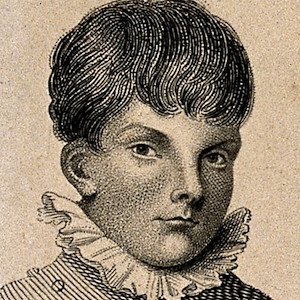
Zerah was thought to be mentally challenged until the age of Seven. After six weeks of schooling his father overheard him repeating his multiplication tables. At the age of Seven, it took him 6 seconds to calculate the number of hours in 38 years, 2 months, and 7 days. He was able to solve the Fermat number 2^32 + 1. He also determined using his mind that 4,294,967,297 is not prime and its divisor was 641. The other divisor is 6,700,417 and can be found using a calculator.
During his childhood, many individuals and institutions offered free education to Zerah, but his father refused all of them. His father capitalized on his talent by taking Zerah around the US and later to England, Scotland, Ireland and France. In 1824 , he returned to the United States. Though Zerah's schooling was rather irregular, he also had talent in languages. He went to Fairfield, New York, as assistant teacher of an academy; he later moved to Burlington, Vermont, where he taught French, pursuing his studies at the same time in the University of Vermont.
In 1833 he published his autobiography. From this it appears that his faculty of computation left him about the time he reached adulthood. He died of tuberculosis at the age of 34 and was buried in Northwich’s Old Meeting House Cemetery.
Ettore Majorana was maybe the most brilliant student of Enrico Fermi, and an outstanding physicist. He was born in Catania, Sicily. Mathematically gifted, he could multiply two 3 digit numbers in his head in seconds at the age of Four.
It is recorded that he constructed a pretty solid argument for the existence of the neutron, but on reasons not clear to anyone, he sat on it and waited until someone else published about it. He further become a theoretical physicist who worked on neutrino masses.
The Majorana equation and Majorana fermions are named after him. In 2006, the Majorana Prize was established in his memory.On March 25, 1938, he disappeared under mysterious circumstances while going by ship from Palermo to Naples.Ettore Majorana (1906–1938) 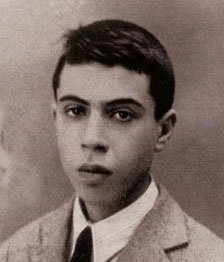
A mental calculator by the age of six years, who could tell jokes in ancient Greek. John Von Neumann was an American mathematician who was born in Hungary. He was a child prodigy in language, memorization, and mathematics. At age 6, he could divide 8 digit numbers in his head. At age 8, he was familiar with differential and integral calculus.
At the age of 15, he studied advanced calculus and by the age of 19, von Neumann had published two major mathematical papers, the second of which gave the modern definition of ordinal numbers, which superseded Georg Cantor's definition. Von Neumann became one of the most prolific mathematicians in his lifetime. He has made numerous contributions in mathematics, physics, computer science, economics, and statistics.
He was a pioneer of the application of operator theory to quantum mechanics, in the development of functional analysis, and a key figure in the development of game theory and the concepts of cellular automata, the universal constructor and the digital computer. During World War II he worked on the Manhattan Project, developing the mathematical models behind the explosive lenses used in the implosion-type nuclear weapon. After the war, he served on the General Advisory Committee of the United States Atomic Energy Commission, and later as one of its commissioners.John Von Neumann (1903–1957) 
Born in Royalton, Vermont, on 6 January 1836. At an early age he attracted public attention by his remarkable calculation powers. Safford could square 18 digit numbers at the age of ten years. At the age of 9, he squared (365,365,365,365,365,365)^2 in less than a minute. At the same, he also developed his own method of calculating the rising and setting of the moon. Unlike many other calculating prodigies, Safford did not give public exhibitions. He went to college and studied astronomy.
Safford studied Astronomy and became the second director of Hopkins Observatory at Williams College, the oldest observatory in the United States. Later on, he became the first director of the Dearborn Observatory (in its old location on the South Side of Chicago, before it was moved to Northwestern).
In 1894, Safford had a stroke. He died on 13 June 1901 in Newark, New Jersey where he was living with his sonTruman Henry Safford (1836–1901) 
Shakuntala Devi was born in Bengaluru, India, on November 4, 1929 to an orthodox Kannada Brahmin family. Her father was a traveling magician. She was nicknamed 'the human computer', known for her very rapid calculation abilities - despite having no formal education. Devi was a very talented mental calculator, but by no means the extreme prodigy that she has been made out to be in the media, and she certainly couldn't take the 23rd root of a number "faster than a computer".
According to an anecdote, she started playing card games with her father when she was three years old. Her father realized that the little girl won all the games against him every day and suspected that she was cheating. He closely studied her as she played and realized that she was memorizing all the card numbers and their sequence as the game progressed in the initial rounds and used this knowledge to win the game.
On discovering his daughter’s special gift he began taking her on tours and displayed her ability at calculation on road shows. Soon she garnered much attention and was able to earn considerable money for her father. When her father got too old, she travelled by herself and sent money to her family. When Ms. Devi performed in New York in 1976, an article in The New York Times marveled at her abilities.
After a short struggle with respiratory and cardiac problems, She died at the age of 83 in April, 2013.Shakuntala Devi (1929–2013) 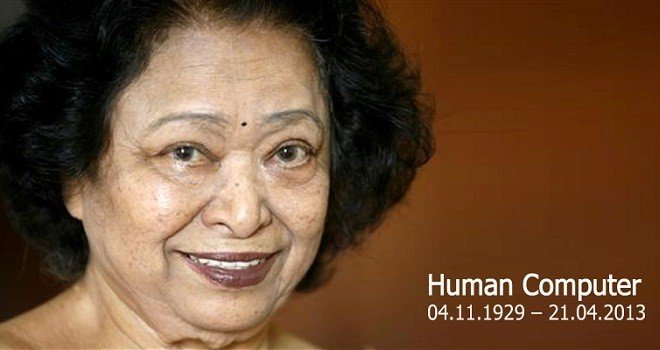
Born on August 19, 1948. Jerry is an autistic savant with the ability to perform difficult mathematical calculations in his head. At age seven, already using calculus to compute third and higher roots. Self-discovered much number theory in elementary school—perfect numbers, Fibonacci, etc.
Newport won four of the 10 events, as well as a second and a third in two events in the 2010 Mental Calculation World Cup in Magdeburg Germany. He also won the World Cup Trophy for the “Most Versatile Calculator.” He received his B.A. in Mathematics from the University of Michigan.
Jerry Newport is the author of three books including, Mozart and the Whale, which is the story of how he met his wife Mary and also the subject of the 2005 movie, "Mozart and the Whale". His other books are Your Life is Not a Label and Autism-Asperger's & Sexuality.
Jerry Newport is 73 years old now. He lives in the desert in Arizona married to Mary Meinel-Newport.Jerry Newport (born 1948) 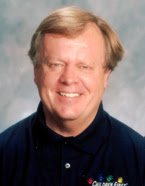
Priyanshi started learning mental maths at the age of 6. She studied in Lourdes Convent High School of Surat and was the youngest participant of the Mental Calculation World Cup 2010 and won the overall combination title held at the University of Magdeburg, Germany, where she was the youngest participant. She was the only participant got a perfect score in Addition, Multiplication, Square Root as of this writing in all five Mental Calculation World Cup.
On January 3, 2012, he became a new world record holder in calculating square root mentally. She calculated 10 square root problems all with 6 digits by using Memoriad Competition software, she finished 10 tasks of 6 digit numbers in in 2 minutes and 43 seconds. All problems were calculated up to 8 significant digits.
She has also won “Pogo Amazing Kids Awards 2010” in genius category and winner of International Olympiad of Mathematics in 2008. Priyanshi is a record holder in Limca Book of World Records and also a World Cup Record holder in calculating square roots. Priyanshi was named the Indian Ambassador for the prestigious World Maths Day in 2011.Priyanshi Somani (1998 -) https://cdn.stumagz.com/images/57f0edad4dc15stryimg
Born on 1st Januray 2003, Yasha is of Iranian descent from Leicester, United Kingdom. This prodigy had gained his third top-grade A level pass at the tender age of ten.
Yasha achieved an A* in Statistics. He already had an A* in Maths and an A in Pure Maths - both of which he gained at the age of eight.He is the youngest person in the world to have achieved a grade A in Maths - scoring 100 per cent and 99 per cent in two of the six papers. After finishing year 6 at primary he went straight to University. before winning his place to study degree level maths at just 12 years old in 2014.
Yasha Asley, 14, is currently employed by the University of Leicester - where he is also a degree student - to run tutorials. He became the youngest ever student at the University and is now the youngest ever employee.Yasha Asley (2003-) 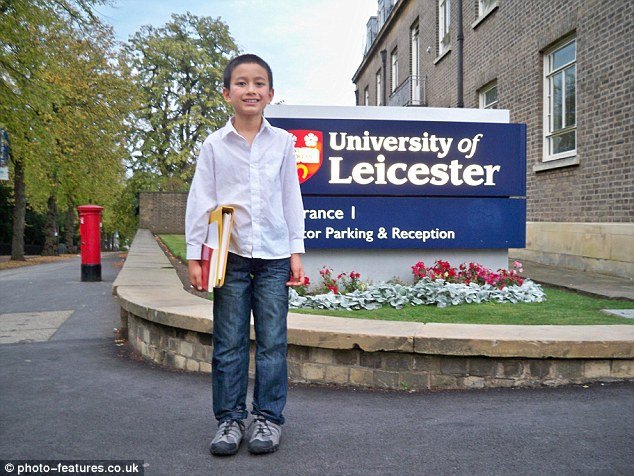
Born on October, 28th 2004 October 28th. He lives in McKinney, Texas with both parents and a sister. At age nine, Jaxon Cota was accepted into Mensa, a society for geniuses. He has an IQ of 148 and that puts him in the top two percent of the world. The young man is also quite passionate about baseball, and as a shortstop and outfielder, was named one of the country’s top under-11 players. His exceptional aptitude for math also comes in handy.
Despite having the intelligence to skip multiple grades and maybe even enter college, Jaxon insists that he just wants to be a normal kid. He said in an interview that that's not something he’d want to do because he wouldn’t be able to do the things he loves like play baseball or hang out with my friends.
Jaxon is part part of our school's honor choir even though he has hearinng loss in both ears. He was also part of student council for 2 years. Jaxon is such a wonder to keep an eye on in the coming years.Jaxon Cota (2004-) 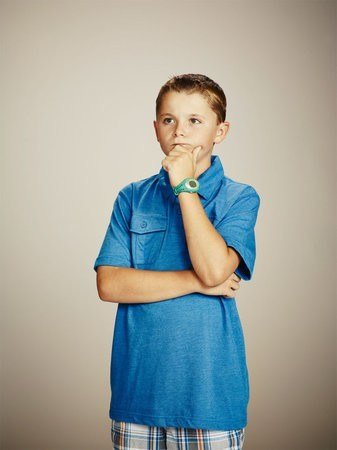
Born May 26, 1998 in Indianapolis. When Jacob Barnett was two years old, doctors told his mother Kristine that her son would probably never be able to talk, read, or even tie his shoes. He had moderate to severe autism.
At age eight, Barnett audited a physics class at Indiana University–Purdue University Indianapolis. His mom sat with him in the lecture hall, so people assumed that she was a student who didn't have a babysitter. But after Barnett started speaking up in class—and after he got an A on the final—the university invited him to enroll. At 10, he was officially a college student. He was a physics student who received publicity at the age of 12 based on erroneous reports that he had disproved, or was about to disprove, or had expanded Einstein's theory of relativity, that he had developed a novel theory of astrophysics, and that he was in line for a Nobel Prize. At 13, he became a published physicist. At home, his parents couldn't stock paper fast enough to keep up with how fast he was writing equations. So he'd move on to whiteboards, then to windows.
Barnett was admitted to the Perimeter Scholars International in 2013 at age 15, the Perimeter Institute for Theoretical Physics in Waterloo, Ontario. He took the program on a two-year basis, in association with the Independent Studies program at the University of Waterloo, because he joined the Perimeter Institute without a bachelor's degree. He completed the program in 2014 and continues there as a doctoral student.Jacob L. "Jake" Barnett (born 1998) 
Exceptional talent in mathematics is relatively easy to identify because an important sign of it — the ability to solve problems quickly or at a high level of difficulty — is relatively simpler to measure than signs of other talents. The modern field of mental calculators generally shies away from words like "prodigy" or "genius". There have been many child prodigies throughout history, and some of them even go on to be prolific adults. Most of them have done more intellectually by that time than we’ll do in our entire lifetimes.
Congratulations @abeekuharmony! You have completed some achievement on Steemit and have been rewarded with new badge(s) :
Click on any badge to view your own Board of Honor on SteemitBoard.
For more information about SteemitBoard, click here
If you no longer want to receive notifications, reply to this comment with the word
STOPIf Barnett makes it, Tao should do as well, haha.
Thanks for the long writeup.